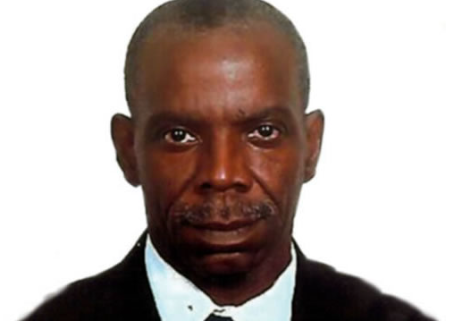By Lekan SOTE
(X:@lekansote1, lekansote.com)
If it is true that Minister of Industries, Trade and Investment, Dr Jumoke Oduwole, has never worked on the factory floor throughout her otherwise glorious career, she may not have the school of hard-knocks experience of how industries really work.
Her experiences as Special Adviser on Industry and Trade and Investment and Ease of Doing Business under the government of former President Muhammadu Buhari, and Presidential Enabling Business Environment Council and Investment to President Bola Tinubu, may not exactly provide her with the grounding and perfect fit for the job of industrialising the Nigerian economy.
She needs to know that Nigeria cannot be truly described as an industrialised nation at the moment. At best, Nigeria is merely an economy where the industrial raw materials of the industrialised nations are assembled. Please overlook the seeming tautology.
In countries like Germany, the automotive, mechanical, electrical and chemical engineering industries form the foundational cornerstone that the industries that manufacture the strategic consumer goods build on.
Also, she must understand that Nigeria hardly has an economy. What passes for the Nigerian economy is no more than a trading outpost for the metropolitan economies that buy its primary agricultural and mineral commodities, only to return them as finished manufactures.
For instance, when the metropolitan economies buy Nigeria’s agricultural cash crops, like cocoa and cotton, and its mineral commodities, like petroleum and gold, they return them as chocolate, hollandaise fabric, petroleum products and jewellery.
What usually happens is that the accumulated foreign currency from the sale of primary raw materials is kept in the vaults of the banks of the metropolitan economies, waiting to be used to finance the importation of consumer goods from the metropolitan economies.
This oppressive economic template is coming from the seminal “The Wealth of Nations”, the grace notes of economists’ patron saint, Adam Smith. It was published in 1776, the year that America’s intrepid “Declaration of Independence” from Great Britain was written and signed.
The Nigerian economy is an appendage of the economies of North America, Western Europe and, lately, the Asian Tigers, led by the erstwhile Communist China that has mastered the Western template of offering loans to be used to pay for the goods and services it exports to Nigeria.
Oduwole must understand that Nigeria can only be said to be industrialised when it can manufacture most, if not all, its manufacturing machines and equipment, industrial spare parts and industrial raw materials within its own borders.
That is the sine qua non. These primary industries will provide the foundational support system for the secondary and tertiary industries that will produce the consumer goods and services that are obtained in the metropolitan economies of the world.
To achieve this strategic goal, basic industries, like iron & steel, electricity, petroleum refineries, manufacturers of industrial raw materials, and more innovative and productive research and development agencies must be fully operational.
Next is the transportation sector that must include extensive road networks, railway lines, airports and waterways that must link the farm-gates, the mining sites, the industrial parks and the Nigerian consumers in the rural and urban centres in the most efficient manner.
There is no point in harvesting crops or producing goods that cannot be transported efficiently and effectively from the producers to the consumers. The farm produce and industrial manufactures will simply accumulate into a pile of unsold inventory of goods that serve no purpose.
The nodal disconnect in the supply chain will cause artificial scarcity, which will, in turn, lead to unnecessary inflation and its accompanying high cost of living. The Yoruba would say that such a condition is akin to the frustrations of a chicken that is looking at maize inside a bottle.
She must also rethink the money market and capital market architecture so that investments and borrowings, mortgages for housing and financing for automobiles will become financing staples for the citizens of Nigeria who currently pay a lump sum to acquire all their heavy assets.
Okay, it may appear that she will be encroaching on the duties and responsibilities of her colleagues, like the Minister of Finance, who is also the Coordinating Minister of the Economy, as well as the Minister of Budget and Economic Planning.
But she must come up with the conceptual framework that these significant others must join to implement, under the chairmanship of the President. Also, the Governor of the Central Bank of Nigeria must contribute to this cabinet-level committee by reviewing banking interest rates in a way to encourage lending and investments.
If this road is not travelled, whatever Oduwole does will amount to nought and a mere scratching of the surface. But, of course, she cannot achieve these strategic goals even in two terms as Minister of Industries, Trade and Investments.
What she must urgently do is draw up a medium- to long-term development plan to take Nigeria’s economic development in coordinated phases, beginning from the most strategic and foundational industries to the next level that will provide the strategic consumer goods and services.
To achieve this, Oduwole needs to get a team of theoretical economists, who can provide the conceptual frameworks for the development plans, and a coterie of hardheaded industry players who can provide the insights in agriculture, mining, manufacturing, sales, marketing, logistics, financing and other areas.
The job of this team, which must not be confused with a presidential economic team, is like that of an economic task force that will survey the economy as it is, determine its strengths and weaknesses and comparative advantages, and therefore recommend a clear path to achieve spectacular economic development.
It may become necessary for this team to take a second look at Nigeria’s First Economic Development Plan of the government of Prime Minister Abubakar Tafawa Balewa and the Second Economic Development Plan of the government of General Yakubu Gowon.
This should help the committee determine how far and how well these plans achieved their stated objectives before making suggestions for an integrated and comprehensive development plan of at least 10 years. This should set Nigeria on the path of economic liberation from the oppressive International Monopoly Capital that comes into the country to merely assemble consumer goods that they have brought in as Completely Knocked Down parts.
The claim by CBN Governor, Yemi Cardoso, that “We have a situation where we have a positive balance of trade surplus” with other economies is most likely to be a result of an increase in export of primary commodities, like petroleum, and not necessarily of manufactured products, like petrol.
However, it must be acknowledged that the export of petroleum products by Dangote Refinery to the United States of America has significantly contributed to the positive balance of trade surplus that Cardoso was talking about.
But Cardoso’s claim that “What is happening is complete restructuring of the economy, where we are encouraging people to go into domestic production, and… discouraging imports”, will be more convincing if Nigeria exports more manufactured products that yield higher profitability than primary commodities. And when multinationals, that left Nigeria for other African countries, return, it will be easier to believe that the claims of increased export, the lowering of inflation rate and a more stable exchange rate are not sterile statistical indices, but evident reality.


